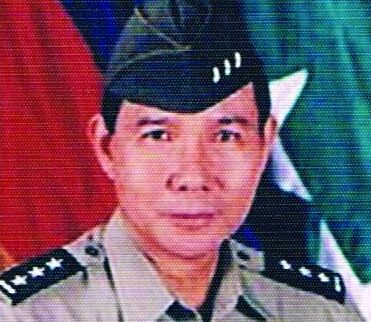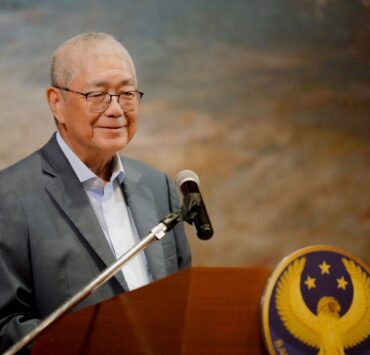Winning small battles against corruption: A call to action

In the military, every mission is broken down into an Operations Order, a structured format known as SMEAC: Situation, Mission, Execution, Administration & Logistics, and Command & Signal.
It is not about theory but about clarity, what the problem is, what needs to be done, how to do it and who takes responsibility. Soldiers facing life-and-death decisions cannot afford vagueness or delay.
Today, our country faces an enemy that is less visible but just as destructive: corruption. It is the flood that weakens institutions, drains resources and drowns public trust.
To fight it, we need not another round of speeches or recycled solutions. We need the discipline of SMEAC. We need to focus on what can be done now, what will deliver immediate and visible victories—small wins that prove government is serious and worth believing in again.
Situation
Corruption has scarred every presidency. From overpriced projects to misuse of public funds, each administration has inherited—and often multiplied—the problem.
Flood control projects are the latest and most glaring example: billions of pesos have been poured in, yet every heavy rain still leaves communities submerged.
The truth is painful but plain: people no longer believe in promises of “reform” when they see no results. The public is not asking for miracles or sweeping changes that require years of legislative work.
What they crave are concrete, immediate actions that send a message—corruption will no longer be tolerated, and accountability will be enforced.
These small victories will not solve everything overnight, but they will prove that the government means business.
Mission
The mission is straightforward: Contain corruption in flood control projects and strike at the networks that enable it across government agencies.
The goal is not to end corruption instantly—no nation on earth has achieved that—but to win battles that restore confidence, show progress and set the tone for the bigger war ahead.
It is about showing that leaders are not afraid to act, that wrongdoers will face consequences, and that honesty in public service is once again a standard, not an exception.
Execution
How can this mission succeed? Through immediate, doable steps that create momentum:
- Expand the wave of resignations. The resignation of DPWH officials is a good start, but it cannot end there.
- Extending the call to agencies like the Commission on Audit, Department of Budget and Management, and Bureau of Internal Revenue will demonstrate that accountability cuts across departments. The principle is simple: no one is indispensable, and no agency is immune.
- Deliver truth in 60 days. Establish a fact-finding commission funded by recovered Priority Development Assistance Fund money, with one task, finish a report within two months. No endless hearings, no bureaucratic dragging of feet. Speed and transparency are the measure of sincerity.
- Name them, shame them. Corrupt officials thrive on silence and respectability. Publish their names, demand their resignation and let the public see that wrongdoing carries real consequences. Service is not an entitlement; it is a privilege that can be taken away.
- Mobilize the youth. Launch a national integrity campaign led by students and young leaders. Their energy, creativity and moral clarity can expose wrongdoing and keep pressure on institutions. More importantly, their involvement reminds us all what is truly at stake—the future they will inherit.
- Show justice in action. Expedite dishonesty and graft cases in the judiciary, then publish every decision. Justice must not only be done; it must be seen to be done. Nothing will restore faith in the rule of law more than a judiciary that cleans its own ranks.
These measures do not require new laws or constitutional amendments. They are within reach now. And each, once implemented, gives the public a reason to clap instead of sigh—proof that progress is possible.
Command and signal
The President has already spoken with urgency and anger, naming names and condemning corruption even during his State of the Nation Address.
That boldness must now be followed by consistent, visible action. But leadership is never a one-man battle.
The public must also do its part. Endless criticism without engagement weakens institutions at the very moment they need to be strong. Constructive support, on the other hand, gives reform a fighting chance. No leader is perfect, but when one chooses to confront corruption directly, it is in the nation’s best interest to rally behind him.
The language of SMEAC gives us clarity: the situation is dire, the mission urgent, the execution outlined and the command clear. The only question left is whether we, as a people, will respond.
We cannot keep waiting for the “perfect” reform or the “perfect” leader. We must celebrate small wins and push for more. A resignation here, a conviction there, a commission report delivered on time—each may seem small, but together they form the foundation of trust.
If soldiers can face life-and-death missions with clarity and discipline, surely our government can face corruption with the same resolve. And surely, we as citizens can support, engage and demand that progress continues.
The time for excuses is over. In SMEAC terms, the order is simple: Act now. Hold the line. Celebrate small victories. Keep pressing forward.
Afterthought
Recent developments, especially the appointment of Vince Dizon as Department of Public Works and Highways secretary, are very positive and encouraging.
The firing of Bulacan District engineer Henry Alcantara, and the blacklisting of erring flood control contractors manifest political will. It does not need a long and tedious process to arrive at a decision and implement it with dispatch.
This action employs Surprise as one of the Principles of War. Do not give time for the enemy to prepare and escape detection.
The departure of key congressmen implies aiding the enemy. Many of their colleagues are not only supporters and sympathizers, but they are also equally liable. Many more will follow if the momentum decelerates.
The participation of senators and congressmen in the congressional investigation who themselves are equally allegedly involved in the mess will only cover the tracks of truth. It is the employment of deception, cover and concealment.
Protracted investigation without punitive powers is useless and impractical. Let us not employ scarce resources too thinly. Apply the Principle of Economy Of Force.
Civic spirited groups can voluntarily provide information concentrating on personalities, financial information, programs and projects related to flood control and other anomalous transactions.
With almost all sectors of society, private and public now focused on this issue, there is a need to harmonize and integrate the initiatives under one Commander in order to achieve the Principle of Unity of Command.
The Presidency as Commander in Chief has explicitly assumed this role with the latest initiatives. By these actions, he has manifested strong leadership. Full support demands for the mission to be accomplished. Let us all be counted.
Of course, the Principle of Objective precedes all other Principles of War. In operational terms, the objective is to identify the major personalities involved in the flood control anomalies and deny all resources within their power to recover lost grounds.
The author is a member of the Management Association of the Philippines (MAP) National Issues Committee. He was 42nd Commanding General of the Philippine Army.





















Fighting corruption gradually